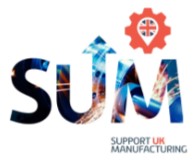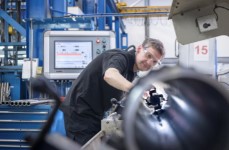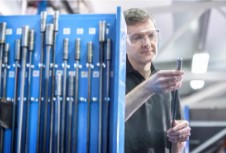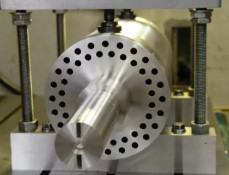Without A Strong UK Manufacturing Sector, You Can't Have A Strong UK Economy
21-02-2023
In advanced capitalist economies like the UK, countries are judged on their economic strength. A healthy economy can help to bring jobs, raise living standards, improve public services, and promote social stability. But have we lost sight of what really matters in maintaining strong and stable economic growth?
A few generations ago, industrial manufacturing was dominant in the UK. Since then, however, innovations in the financial and service sectors have seemingly taken precedence in national concerns, but manufacturing hasn't gone away. UK manufacturing persists among SMEs and has great potential for technological innovation and job creation.
So, shouldn't we be paying more attention to the economic benefits of a strong manufacturing sector?
Banking And Services Are Not Enough
In the last 40 years, UK banking has expanded massively. During the country’s EU membership, successive governments were happy to ‘outsource’ manufacturing capabilities to EU partner countries such as Germany, while specialising in financial services as the ‘money house of Europe’. There's no denying that banking remains a highly lucrative sector. However, post-Brexit, questions exist about its stability and capability of providing a sound basis for economic growth, especially since the 2008 financial crisis.
Since the decline of heavy industry in the UK, the service sector has also seen a big rise, and it is now the largest single contributor to UK GDP. However, the service sector alone is not enough to sustain the UK's economy and there are worries that it may not provide the stability and skills development needed to maintain consistent growth. Overreliance on services could leave the UK at the mercy of international trade and global contingencies, as we have seen acutely with the recent crises and supply chain disruptions caused by Covid and the war in Ukraine.
The Importance Of UK Manufacturing
99% of the UK's economy is made up of SMEs, and with large-scale industry now mostly off-shored, this includes the majority of manufacturers. But too often, manufacturing is overlooked in political decision making, hidden away in industrial estates or backyard workshops. This is despite the fact that the UK's manufacturers are still producing many components that we rely on in everyday life. Indeed, though it's not as large as it once was and its composition differs, the UK's industrial sector is still the ninth-largest globally.
The global disruptions caused by Covid have been something of a wake-up call for the UK's economy. As globalisation contracts, at least temporarily, it seems we cannot rely on international trade and logistics to keep our essential services and commodity availability alive. Indeed, during the pandemic, it was the UK's SMEs who stepped up to the mark to provide ventilators, pharmaceutical products, PPE and other necessities. This kind of adaptability helped us to get through the worst of the suspensions in international trade.
We Need To Support UK Manufacturing
It makes sense, therefore, for political decision makers to support UK manufacturing, lessening the problems of international supply chains and looking to promote economic and environmental sustainability.
A thriving manufacturing industry not only provides useful products with simpler supply chains.
It also provides jobs and apprenticeships for youngsters looking to make their mark. Investment in UK manufacturing can help to provide long-term stability for the UK, boosting technological innovation and home-grown talent.
It would be wise for the UK to have a dedicated Minister for Manufacturing, to champion the interests and benefits of our manufacturing sector – both nationally and internationally.
In times of global contraction, the more we invest in UK manufacturing, the less we depend on international trade. And while the effects of international disruptions cannot be entirely banished, they can certainly be mitigated by a strong, and recognised, UK manufacturing sector.
Our Director, Andrea Wilson, is the figure head of Support UK Manufacturing is calling for more recognition of SME manufacturers, improved (not increased) support and a return to in-house apprenticeship training with tax incentives to support this. Visit www.supportukmanufacturing.co.uk for more information.






